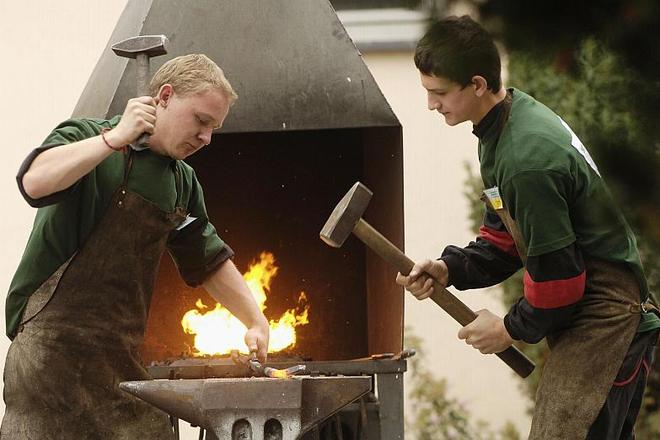THE SLOVAK government is working on a law which will enable companies to finance the professional training of pupils and even found their own schools. At its session on August 27, the government approved as a legislative goal a law on professional education and professional training. This will create a system to coordinate professional education and training with labour market needs, the Education Ministry said on its website. The new law will introduce criteria for the involvement of employers and employers’ unions in professional education, and will allow for private capital to be invested.
As many as 80 percent of graduates from secondary professional schools do not start working in the trade they have studied. Young people’s interest in technical professions and the increasing lack of qualified employees in the labour market has left employers in an increasingly difficult position. It has become harder and harder to find workers to fill factory jobs, and the situation is also complicated by unfavourable demographic developments. Many school departments teaching the subjects which companies are interested in are having trouble finding enough new students, or indeed finding any at all, according to the Hospodárske Noviny financial daily.
The government aims to improve the situation by special tax stimuli which will be made available to all companies investing in professional education and the training of secondary school students. Companies will get the chance to found their own secondary professional schools, where they will be able to prepare students according to their requirements. To finance the professional schools, part of the two percent assignment of income tax, which currently goes mainly to non-governmental organisations, can be used, according to the approved bill on professional education and training. The bill should be discussed in parliament by the end of this year.
Apart from financing, the legislative proposal covers in detail the cooperation between all parties involved, for instance between local government and regions. These are responsible for most secondary schools, and will need to get to know the structure of their graduates better. However, the main responsibility will fall on companies, which will have to specify their human resources’ needs and project them for several years in advance. Due to their requirements, the schools will establish, modify or even end specific apprenticeships.
Cooperation between some companies and professional schools exists at the moment, but only to a limited extent, and in just a few areas – excursions, short-term work experience, sponsorship, etc. But there is no mechanism for companies to influence the contents of educational syllabuses, nor any role for private capital in the sector. This, however, should change from next year.
Not only companies, but also non-profit organisations and associations will be able to found new professional schools as required by the labour market. Companies will also be able to invest in the modernisation of technology, equipment, or practical education at public professional schools. Money could also go towards scholarships or teachers’ pay. Companies will be able to include all such expenses in their costs, something which is not presently allowed. Up to now, if a factory has wanted to support a school with new technology or a laboratory, it has mostly done so through a sponsor’s gift.
According to the vice-president of the Automotive Industry Association, Július Hron, the estimates of the professions that employers will need in the future will be crucial. As a result they are lobbying for the final version of the bill to include the need for companies to notify the statistics office of their five-year prognosis.
“Professional education without doubt must receive investment,” Hron said, adding that the current state of affairs cannot continue. According to statistics, 80 percent of secondary schools graduates do not take a job in their area of study. “So they attended school for several years in vain, as they will not use the knowledge they learned, and employers must again invest in their re-qualification,” Hron adds.
The new model for professional training is supported by most employers’ unions and associations.



 Todays' young people are seldom interested in manual professions (source: ČTK)
Todays' young people are seldom interested in manual professions (source: ČTK)